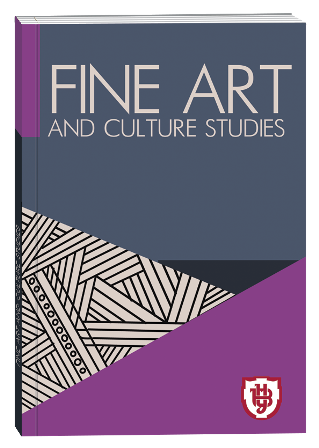CULTURAL AND PHILOSOPHICAL ASPECTS OF PERSONALITY TRANSFORMATION THROUGH SPIRITUAL ALCHEMY IN THE LIGHT OF NEO-CONFUCIANISM
DOI:
https://doi.org/10.32782/facs-2025-4-45Keywords:
Neo-Confucianism, Taoism, Qi (氣), «Body Xin» (心), «Soul Shen» (神), cultural history, cultural studiesAbstract
The article is devoted to the analysis of important cultural phenomena of the modern globalized society on the example of the study of a Chinese artifact of personal and social life «inner alchemy», which characterizes the search for ideas of general modernization from the Yellow Turban Rebellion (黃巾起義) to the Yixuan Rebellion (義和團運動). These factors, on the one hand, determine the exclusivity of cultural and political processes in Chinese society, and on the other hand, are powerful markers of the supra-personal mechanisms of self-regulation and progress of the entire human community. Since the leading Taoist sources of such ideas, the Tai Ping Jing (Canon of Majestic Tranquility) (太平清領書), were partially or completely lost in ancient times, the authors turn to the conceptual apparatus of Neo-Confucianism, which doctrinally responded to the challenges articulated by Taoism. The basis of the scientific research is the modern counterpart of traditional Taoist alchemy, the concept of «Martial arts», which is becoming a significant identifier of contemporary mass culture in both Eastern and Western societies. The terminological analysis of this concept in modern China allowed us to consider comprehensively the historical features of its formation from Wushu (武術) to Qigong (氣功), and to testify to the continuity of Chinese spiritual culture from Hong Xiuquan (洪秀全) to Mao Zedong (毛澤東).The logic of scientific research did not ignore the content-forming component of inner alchemy and traditional Chinese medicine, the energy Qi (氣), which is revealed in the traditional natural philosophical view of the separation of the Body and Soul of the individual in social life. The latter are revealed as a manifestation of the «vital energy» for the «Xin Body» (心) and the «Shen Soul» (神). On the example of treatment with traditional remedies, it is shown that these concepts are interdependent and complementary, in contrast to European views, which, starting with the Pythagoreans, looked at the «body as a prison of the soul». In classical Greek-language literature, and later in Christian apologetics, which shaped European civilization, this image was often conveyed in its present form by a play on words based on the phonetic similarity of «soma» («body») and «sema» («grave»). Further research is considered promising, which, using the example of Taoist alchemy, can show the process of the Renaissance as a global cultural progress towards the «rehabilitation» of human body culture and the modernization of society.
References
Кобзєв А.І. Конфуціанський катехезіс. Всесвіт. 1989. № 10. С. 57–60.
Платон. Держава / пер. з давньогр. Д. Коваль. Київ : Апріорі, 2021. 464 с.
Calzolari V. Aux origines de la formation du corpus philosophique en Arménie: quelques remarques sur les versions arméniennes des commentaires grecs de David. The Libraries of the Neoplatonists / C. D’ancona. Leiden, 2007. P. 261–264.
Chan, Alan K. L. Mencius: Contexts and Interpretations. Honolulu, 2002. 336 p.
Hendrischke B. The Scripture on Great Peace: The Taiping Jing and the Beginnings of Daoism. Berkeley, 2006. 420 p.
Hoang Ti. Emperador Amarillo Nan Jing Tratado de las 81 dificultades. Madrid, 2016. 112 p.
Kaltenmark M. The Ideology of the Tai-ping ching. Facets of Taoism. Essays in Chinese Religion. New Haven, 1997. С. 19-45.
Lo Kuan Chung. Romance of the Three Kingdoms. In 4 vol. Vol. 1. / trans. by C. H. Brewitt-Taylor. Boston, 2002. 708 p.
Plato. Gorgias, Menexenus, Protagoras / trans. by T. Griffith. Cambridge, 2009. 207 p.
Rickett W.A. Kuang-tzu. A Repository of Early Chinese Thought. A Translation and Study of Twelve Chapters. In 3 vol. Vol. 1. Hong Kong, 1965. 269 p.
Twitchett D., Loewe M. The Cambridge History of China. In 15 vol. Vol. 1. Cambridge, 1986. 1024 p.
Valéry P. Charmes. Paris, 1956. 119 p.








